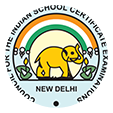A well-structured routine provides a foundation for academic success and personal growth for students. Incorporating a routine nourishes critical thinking enhances comprehension, and improves vocabulary. A daily routine of incorporating reading shall balance the study, recreate, and take enough self-care. Reading is known to broaden the horizons by encouraging creativity and developing empathy for diverse perspectives. This article explains why reading matters for every student with its benefits, role, and academic success, and tips to create one to foster lifelong success.
Check out the details of the Best ICSE School in Bangalore emphasizes why a reading routine matters along with imparting traditional education with academic books.
The Benefits of Reading for Students
Reading not only does equip students with tools to excel academically in examinations or assignments but also lays a groundwork for lifelong learning and intellectual growth. Let’s understand the benefits of reading for students as a lifelong activity.
1. Academic Excellence
- Reading significantly improves comprehension and analytical skills.
- It makes it easier to understand complex concepts by exposing students to diverse subject ideas and vocabulary.
- A regular reading routine strengthens the focus and memory which are essential to excel in studies and exams.
2. Communication Skills
- Consistent reading enriches vocabulary and grammar, which improves language proficiency.
- Students are enabled to articulate their thoughts more efficiently, both in speaking and writing, by exposing them to diverse writing styles.
- The exposure and enhanced communication skills aid students in academic and personal success with confidence.
3. Emotional and Social Development
- Stories or books about diverse cultures, emotions, and struggles help students connect better with others.
- This fosters emotional intelligence, empathy, and socializing skills to experience distinct perspectives.
- This trait develops a sense of understanding and compassion which are essential in social interactions.
4. Critical and Problem-Solving Skills
- Books with diverse concepts pose a challenge for students to analyze information and form independent opinions.
- These challenges nurture critical thinking and logical reasoning about various scenarios and ideas.
- Reading enables students to tackle problems with innovative solutions which ultimately fosters critical and problem-solving skills.
5. Creativity and Imagination
- Getting exposed to diverse concepts and styles, books enable the imagination within the students and think outside the box.
- Reading sparks creativity and inspires innovative ideas that are untapped by transporting readers to new worlds.
- This helps in areas of life, problem-solving.
6. Stress Relief and Mental Well-Being
- Consistent reading habit becomes a relaxing activity that reduces anxiety and stress.
- It promotes mindfulness and emotional balance by escaping from daily chaos or pressures.
- It prepares students to face distinct challenges with resilience and perseverance by enhancing their overall mental well-being.
7. Lifelong Learning and Personal Growth
- Consistent reading habit creates a foundation for continuous self-improvement.
- It instills a love for learning and knowledge.
- It equips students with enough curiosity and adaptability to navigate the complexities of an ever-changing world.
Why Reading is Crucial for Academic Success
Reading regularly plays a fundamental role in building essential skills and fostering intellectual growth for students to achieve excellence in academics. Well, the following explains why reading is an indispensable tool.
1. Enhanced Comprehension – It enables students to understand complex topics easily and grasp them to retain information across diverse subjects.
2. Focus and Concentration – As reading demands attention, it enables students to develop and concentrate with discipline for extended periods.
3. Vocabulary Building – As students are exposed to diverse texts, it enriches them with vocabulary, helping with effective writing and communication in exams.
4. Strong Writing Skills – By navigating varied writing styles, students are enabled to learn a structure that becomes their interest or style which enhances essay writing and reporting abilities.
5. Analytical Thinking – Books enable students to evaluate information, form arguments, and solve problems effectively, encouraging critical and analytical abilities.
Encouraging a Love for Reading Among Students
Here are effective strategies to cultivate the habit of reading which fosters academic, emotional, and social development.
1. Create a reading-friendly environment filled with a variety of age-appropriate books to make reading appealing and simple.
2. Students or teachers can lead students by example which is more likely for them to adopt a habit by themselves.
3. Introduce diverse genres like mystery, fantasy, fiction, semi-fiction, and biographies to match diverse interests.
4. Indulge in book discussions or reading clubs to make reading a shared and engaging experience.
5. Set reading goals like achieving targets such as a chapter a day or a week which over time builds consistency.
6. Leverage technology for text-savvy students which can promote literacy using e-books or audiobooks.
7. Celebrate progress by rewarding small milestones after completing a book to keep the motivation intact.
The Lifelong Impact of Reading Habits
Reading is a tool for both personal and lifelong learning growth. It is a transformative habit that makes it more than a pastime with enduring benefits in shaping personality by enhancing decision-making and resilience. With reading habits, individuals carry a positive impact throughout their lives enhancing not only their intellectual aspects but their emotional and social skills too. Let’s understand how:
Shaping Personality
- It exposes individuals to diverse cultures, experiences, and perspectives, which broadens their level of understanding and empathy.
- It develops a more compassionate and open-minded personality through varied genres like biographies, fiction, and philosophical texts.
- It contributes to a well-rounded character development by nurturing emotional intelligence and introspection.
Improving Decision-Making
- Distinct books challenge readers to analyze the situations, weigh the options, and predict the outcomes.
- A consistent habit hones an individual’s skills in critical thinking and problem-solving abilities.
- Exposure to real-life scenarios and complex plots sharpens judgment skills, enabling individuals to make informed and balanced decisions.
Fostering Resilience
- The books filled with distant characters and their trajectories provide lessons in perseverance and adaptability.
- Reading about how characters overcome adversity and navigate through the chaos inspires readers to face challenges with courage and determination.
- Reading offers a healthy escape from stress by promoting emotional stability and well-being.
- Books play a vital role in building mental strength and resilience with diverse topics and stories.
Conclusion
Therefore, reading is a transformative habit that equips students with enough skills to excel in their academics, personal, and professional lives. As reading unlocks a world of knowledge and imagination, empowering them to become well-rounded individuals, this consistent habit enhances intellectual growth and nurtures emotional intelligence.
Ultimately a regular reading habit enhances academic excellence, communication skills, critical thinking, problem-solving skills, emotional intelligence, creativity, and imagination, relieves stress, and fosters overall mental well-being. These benefits make reading an indispensable tool in a student’s journey.
FAQs (Frequently Asked Questions)
- Why is reading considered an essential habit for students?
Reading is considered an essential habit for students, as it enhances focus, knowledge, and vocabulary skills, and strengthens critical thinking, which are essential for personal and academic success. - How does reading improve a student’s academic performance?
Reading improves a student’s academic performance by boosting his or her vocabulary, comprehension, and analytical skills, which are crucial to excel in examinations and assignments.
- What are the best ways to encourage students to read more?
Create a reading-friendly environment, mitigate distractions, set the whole place with diverse and engaging books, and set aside regular time for reading.
- How does reading enhance critical thinking and creativity in students?
Reading enhances critical thinking and creativity in students by challenging their current mindset with new ideas and perspectives. This helps to enhance innovative thinking and problem-solving abilities.
- What role does reading play in developing communication skills?
Reading plays an important role in developing communication skills in students with enriched vocabulary and language proficiency. These help students clearly and confidently to articulate their thoughts.




